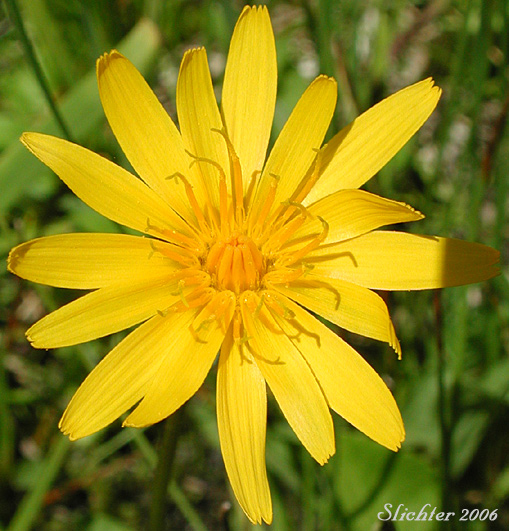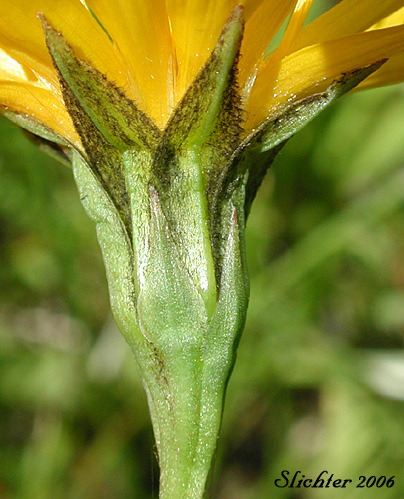Apargidium, Bog Microseris, Northern Silverpuffs
Microseris borealis
Synonym: Apargidium boreale

The photo above a close-up view look down on
the flower head of northern microseris as seen as seen at about 4500' on the
northwestern slopes of Mt. Adams...........May 23, 2005. All photos on this
page were taken at the same location and at the same date. The plant shown here
should now be part of the collection at the herbarium at the University of Washington.
Characteristics:
Habitat:
Northern microseris may be found in sphagnum bogs
and wet meadows at moderate elevation in the mountains. It is often found in
meadows that are inundated with standing water early in the season but which
dry by late summer.
Range:
Northern microseris may be found from the southern
coast of Alaska south through the Alaskan panhandle to the Cascade Mts. of Washington
and Oregon south to the mountains of northwestern California. It is not found
east of the Cascades.
In the Columbia River Gorge, it may be found between
the elevations of 2700'-3100' in high elevation marshes beneath Larch Mt. and
to the west of Palmer Peak.

The photo above shows a close-up of the involucral
bracts of northern microseris. Note how the outer row of bracts is much shorter
than the inner, darker row and note also the dark hairs at the tips of the inner
row of bracts.

The photo above shows the roots, cluster of basal leaves and
lower half of the leafless scape of northern microseris. The photo shows the
typical habitat in the background, which is a moist meadow inundated by up to
a foot of water during the early season, through which the flowers will first
bloom.
Paul Slichter
